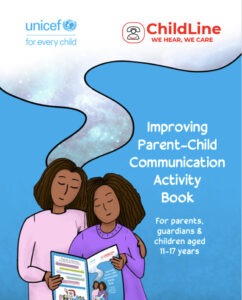What Are Eating Disorders?
Humans need food and water in balanced proportions to live. Sometimes, things happen in our lives cause a disruption in out eating habits causing us to eat more or less than is usual or more or less than is healthy. Children and teens sometimes eat too much, eat too little or try to make themselves throw up after they eat. All of these practices are unhealthy. When there is a drastic difference in the amount of food that we ought to eat and what we are actually eating, this can develop into what is known as an eating disorder.
Who is affected by Eating Disorders?
Eating disorders often appear during adolescence or young adulthood, but can even occur in childhood or adulthood. Women and girls are more likely to develop an eating disorder. Most people believe that Eating Disorders are not serious; however they are real medical illnesses. People with eating disorders also can suffer from many physical health complications, such as heart conditions or kidney failure, which can lead to death.
Causes of Eating Disorders
There are numerous factors that contribute to Eating Disorders. Although concern about body size and shape is common in all, there are other factors that may play major roles in the development of an eating disorder.
- Psychological – a person may be experiencing low self-esteem such that they feel as though they have very little or no control over their life. This can result in an obsession with controlling the amount of food intake.
- Psychiatric – persons suffering from mental health disorders such as depression, anxiety disorders, or substance abuse are more likely to develop an Eating Disorder than a person who does not.
- Family influences – Being criticized about size and weight by parents can cause children to develop Eating Disorders from an early age. Persons with eating disorders often have a family history of substance abuse, eating disorders and obesity.
- Genetic – Persons with Eating Disorders commonly have a tendency to inherit these disorders.
- Culture – Media projects thinness as the essence of beauty by portraying thin, young models as desirable. Many popular clothing brands design small sizes for thin bodies, which very few people, especially women can comfortably fit into.
- Social – many sports and activities such as ballet demand thin, lean bodies which may cause a person to develop an Eating Disorder to maintain this figure. It is socially fashionable to be thin to be attractive and “cool”, otherwise a person can be ridiculed and face social rejection.
There are 3 main types of Eating Disorders
- Anorexia Nevosa
- Bullimia Nervosa
- Binge-Eating Disorder
Anorexia Nervosa
Anorexia Nervosa is an eating disorder characterised by refusal to maintain a healthy weight. Persons with Anorexia Nervosa are morbidly afraid of gaining weight due to a very distorted self image. Persons with Anorexia see themselves as much larger than they actually are. They are obsessed with keeping down their weight, and are conscious of every thing that they eat. They are obsessed with excercising all the time
Other symptoms of anorexia include:
- Thinning of the bones
- Dry and yellowish skin
- Growth of fine hair over body
- Mild anemia, and muscle weakness and loss
- Severe constipation
- Low blood pressure, slowed breathing and pulse
- Drop in internal body temperature, (person feels cold all the time)
- Extremely unenergetic and listless
Bulimia Nervosa
Bulimia nervosa is characterized by a pattern of eating an unusually large amount of food immediately followed by expelling the food either by vomiting or purging or engaging in intense exercise. This occurs in cycles that repeat itself. Depending on the severity of the case this cycle may be repeated during the course of the week or several times a day.
Unlike anorexia, people with bulimia can fall within the normal range for their age and weight. Similar to people with anorexia, they often fear gaining weight, want desperately to lose weight, and are intensely unhappy with their body size and shape.
Other symptoms of Bulimia Nervosa include:
- Badly inflamed and sore throat
- Swollen glands in the neck and below the jaw
- Worn tooth enamel and increasingly sensitive and decaying teeth as a result of exposure to stomach acids
- Reflux disorder
- Intestinal distress and irritation from laxative abuse
- Kidney problems from diuretic abuse
- Severe dehydration from purging of body fluids
Binge-Eating Disorder
In the teenage years, our bodies demand extra nutrients to support growth. Sometimes teenagers experience growth spurts and go through phases where they are unusually hungry and eat more than usual.
Binge eating is different from having the occasional increased urge to eat more or overeating from time to time. People who binge eat consume unusually large amounts of food as a matter of norm. They often eat quickly, do other things while eating (like watch TV or do homework), and don’t stop eating when they’re full. Binge eaters usually overeat when they are facing difficulty such as stress, hurt, depression or anxiety.
People who binge eat are usually overweight as they eat significantly more nutrients than their bodies need. As a result, they may feel bad about themselves and about their bodies.
Obese people with binge-eating disorder often have psychological illnesses including anxiety, depression, and personality disorder and suffer from obesity, heart disease and hypertension.
Treatments for eating disorders
There are many treatment options for eating disorders. Some of these include:
- Psychotherapy – Individual and group therapy can help a person explore the issues that cause the eating disorder, improve self-esteem, and learn healthy ways of responding to stress and emotional pain.
- Nutritional counselling – Professionals such as dieticians or nutritionists are an important part in the treatment of eating disorders. They can guide a person to design meal plans, set dietary goals, and achieve a healthy weight. Nutritional counselling involves education about basic nutrition and the health consequences of eating disorders.
- Support groups – Attending an eating disorder support group can help an individual feel less alone and ashamed of their disorder by helping a person share personal experiences, give advice, encouragement, and develop coping skills.
- Residential treatment –- Residential or hospital-based treatment might be needed when there are severe physical or behavioural problems, such as a resistance to treatment, medical issues that require a doctor’s supervision, or continued weight loss.
Resources
http://kidshealth.org/teen/food_fitness/problems/binge_eating.html
http://kidshealth.org/kid/health_problems/learning_problem/eatdisorder.html
http://pbskids.org/itsmylife/body/eatingdisorders/print_symptoms.html
http://en.wikipedia.org/wiki/Bulimia_nervosa
http://en.wikipedia.org/wiki/anorexia_nervosa







